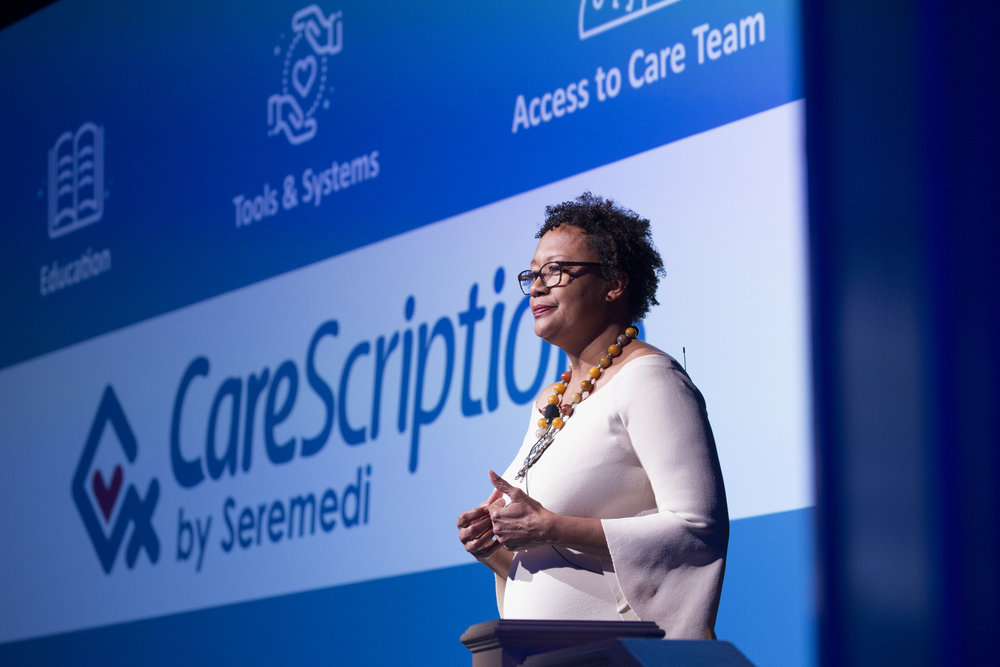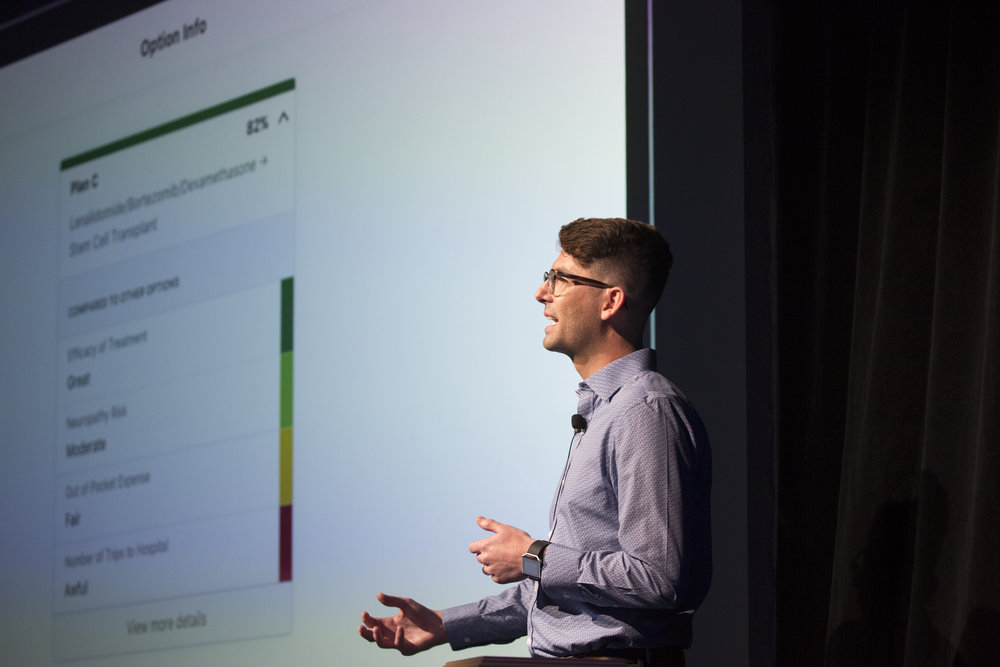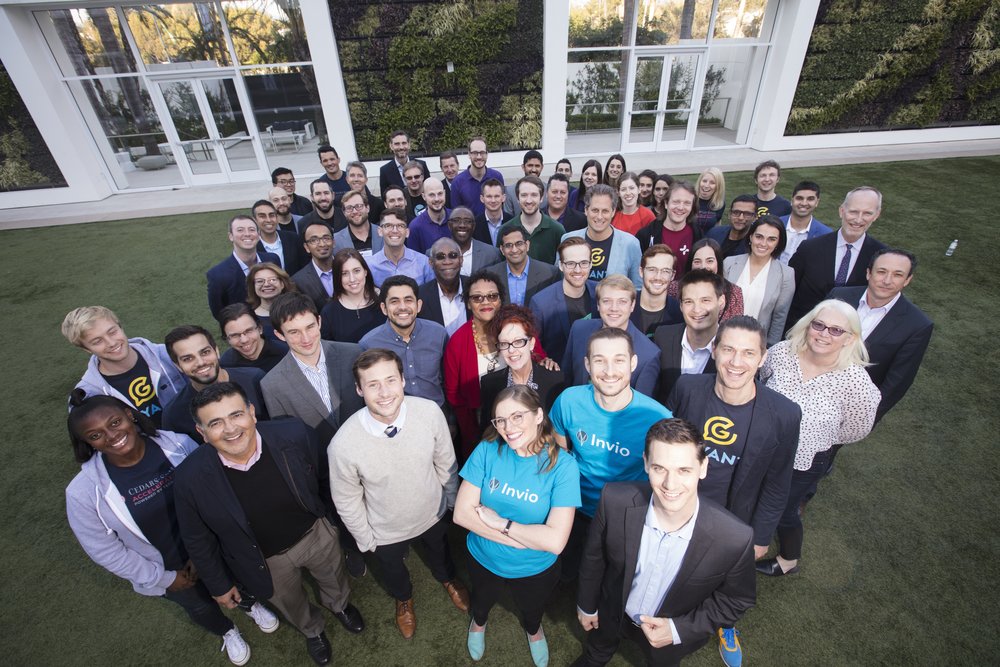By: Maureen Klewicki, Program Director, Cedars-Sinai Accelerator Powered by Techstars
When we first launched the Accelerator in 2016, it was our goal to help today’s technology innovators turn their ideas into health breakthroughs to improve the lives of our patients at Cedars-Sinai and around the world. In just the last two years, we’ve welcomed 28 companies from 3 continents to our Innovation Space and graduated our first three classes.
At the heart of our accelerator program and our companies’ success are the mentors and the executive sponsors guiding our company co-founders as they participate in the intensive, three-month bootcamp. Time and time again, when we ask our alumni about their favorite part of the program, they point to the mentors who challenge and inspire them to be the best they can be.
Recently, I had the chance to connect with our latest class of alumni to learn more about the people who made their accelerator experience unique. Learn about five different ways mentorship can add value to your startup, as told by our alumni founders:
1. The startup health tech ecosystem can be overwhelming, but mentors help you navigate it like a pro.
Cedars-Sinai has thousands of resources, but it can be difficult to narrow down leads and prioritize assets when there are so many choices and possibilities.
Thankfully, to navigate the Cedars network, Kim Bond Evans of Seremedi could rely on accelerator directors Omkar and Suzanne. “They have very broad and deep knowledge about how Cedars-Sinai operates,” she recalls. “The ecosystem can be a bit overwhelming if you don’t know what your starting point is, but they really distill it down and help you form a manageable plan with the right expert mentors to guide you.”

Kim pitches CareScriptions at Class 3 Demo Day in December 2017.
2. Mentors can help you build confidence in your product, especially if you’re an early stage startup.
For Sumeet Bhatia of Aiva Health, participating in the program was a “no brainer.” Working with nurses and patients across the Cedars-Sinai, Sumeet was able to see first-hand the need for a smart voice care assistant like Aiva. As the Wall Street Journal reports, when patient Adrienne Edwards was at Cedars overnight for abdominal surgery last month, she took part in a trial of the Aiva system. Ms. Edwards’ verdict? “It rocks.”
Sumeet notes: “For early stage startups like Aiva, validation is important, and that’s why we came to Cedars-Sinai. In three months, the pilots we completed and the people we worked with helped us achieve new levels of confidence in our vision and mission knowing that we have developed a product that works and that people want.”

Sumeet demonstrating Aiva at Class 3 Demo Day in December 2017.
3. Mentors can offer you new perspectives to the problem you’re trying to solve or the health sector you’re aiming to disrupt.
Invio’s SourceDrive is a cloud-based solution for monitoring clinical trials, connecting research sites with sponsors and patients and modernizing clinical trial workflows. For CEO Dema Poppa, “Coming in, I perceived selling to health systems to be very difficult. In fact, we thought we were just going to sell to the other side of our market.”
But Invio’s Executive Sponsor, Cedars-Sinai Vice President of Research and Associate Dean Nicole Leonard, challenged Dema and his team to see the issue through a new lens: “With Nicole’s useful insider perspective, we were able to see the scale of the problem and understand the problem from the perspective of the medical research sites. Because of that, we learned to message — and sell — our value proposition differently.”
4. Mentors have deep networks and can connect you to the people you need to know.
For Jonathan Jackson, CEO of ChoiceMap, one of his most memorable experiences from the accelerator program was Mentor Madness. “During Mentor Madness, we got more quality introductions each day than we would have gotten in six months anywhere else,” he recalls.
When I asked him about a mentor that stood out, he mentioned Brenda Schmidt (Solera Health), who proved to be a powerful influence on ChoiceMap — and the people ChoiceMap needed to know. He shares: “Brenda introduced us to people we never would have met otherwise. Everyone she's introduced us to will jump on the phone with us and willing to give us time because she is so well-respected in the ecosystem, and they take her recommendation seriously. She is a total powerhouse.”

Jonathan pitches ChoiceMap at Class 3 Demo Day in December 2017.
5. Your mentors are your biggest advocates.
Your mentors are your biggest champions — just ask CancerAid’s Nikhil Pooviah. Coming from Australia, CancerAid had to start from scratch forging connections and relationships in the U.S., but working with Cedars-Sinai gave them a significant leg up and. Cedars helped CancerAid develop a robust business model that made sense in the US healthcare market, and Nikhil notes: “In three months, we were able to build out a network that probably would have taken us years otherwise, and this has helped us rapidly better understand our U.S. customers, reach new customer leads, and raise investment in the U.S.”

Members of the CancerAid team — Nik, Raghav, and Martin — at Class 3 Demo Day in December 2017.
Thank you to the mentors who are at the heart of our accelerator program and our companies’ success! We look forward to working with you for the next class of companies. Are you a startup interested in participating in our fourth class? Apply now; applications close Sunday, March 25!


